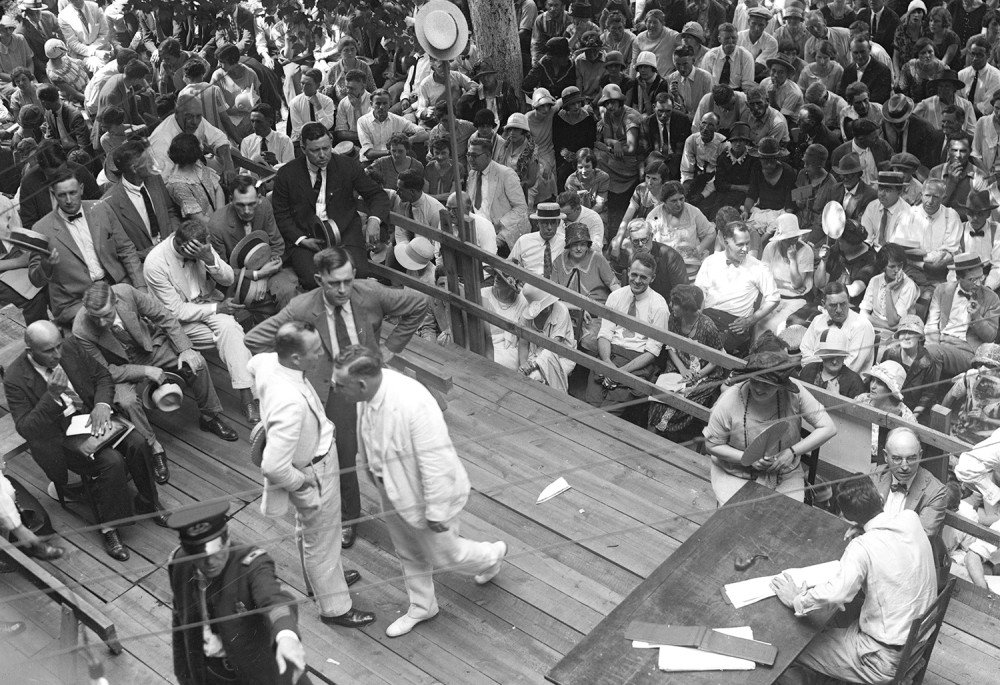The Scopes Monkey Trial and the evolution of fundamentalism
A staged legal proceeding in a small town became the catalyst for a century of culture wars.

Proceedings during the 1925 Scopes trial in Dayton, Tennessee, were moved outside due to large crowds and intense summer heat. (Bettmann Archive / Getty)
On July 10, 1925, the small town of Dayton, Tennessee, became the unlikely epicenter of a clash that reverberated through US history for a century. The trial of John T. Scopes, a young high school teacher charged with violating Tennessee’s Butler Act by teaching the theory of evolution, transcended its immediate legal context to become what historian Edward J. Larson has described as a watershed in American cultural history. As we mark the centenary of this landmark moment, examining both the events leading up to the Scopes Monkey Trial and its aftermath can help us understand how a staged legal proceeding in a small town became the catalyst for a century of culture wars that continue to shape US public life.
The trial is often remembered as a straightforward confrontation between science and religion. In fact it was a complex intersection of theological disputes, cultural anxieties, media transformation, and economic opportunism. What began in the 19th century as a theological debate among Protestant intellectuals would help establish the foundation for the modern religious right and what scholars now recognize as Christian nationalism.
To understand the impact of the Scopes trial, we must consider the theological disputes that gave birth to fundamentalism as a distinct religious movement within American Protestantism. The roots of this movement extend back to Princeton Theological Seminary in the mid-19th century, where theologians developed what became known as Princeton theology.




